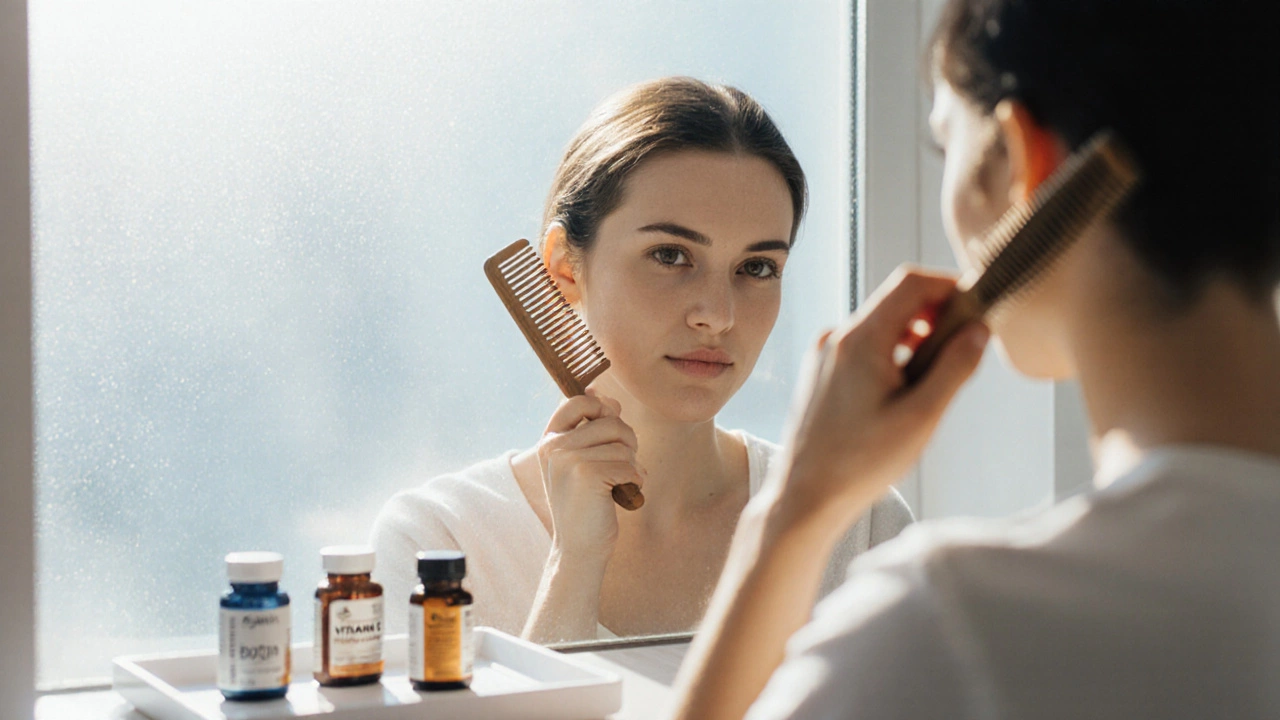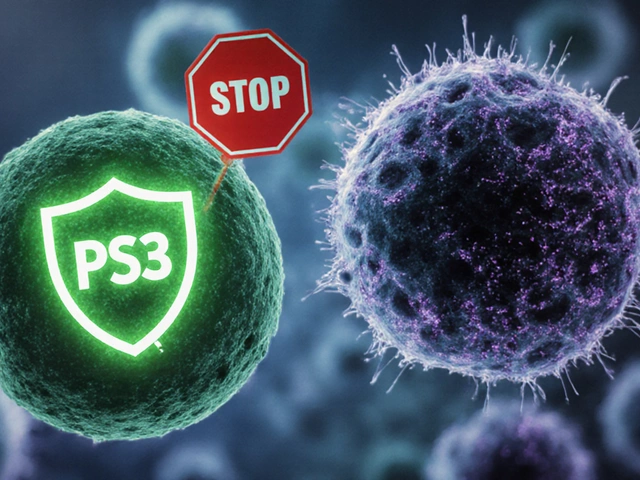Vitamins for Hair Growth: What You Need to Know
When you hear vitamins for hair growth, nutrients that support thicker, stronger strands. Also called hair‑boosting supplements, they work by feeding the follicle, reducing breakage, and promoting new growth.
Among the many nutrients, a few stand out. Biotin, a B‑vitamin crucial for keratin synthesis is often the first name on the list. Vitamin D, the sunshine vitamin that helps hair follicles enter the growth phase plays a subtle but vital role. Zinc, a mineral that regulates oil glands and supports DNA replication in hair cells rounds out the trio. Together, they form a nutrient trio that many experts say is the backbone of healthy hair.
How These Vitamins Interact with Your Hair Follicles
The relationship between nutrients and hair is straightforward: the follicle is a tiny, fast‑growing organ that needs a steady supply of building blocks. vitamins for hair growth encompass biotin, vitamin D, and zinc, each delivering a specific function. Biotin enables the production of keratin, the protein that makes up your hair shaft. Vitamin D signals the follicle to stay in the anagen (growth) stage longer, while zinc keeps the scalp environment balanced, preventing excess oil or inflammation that can choke new growth.
When one of these keys is missing, the hair cycle can stall. Low biotin levels often show up as brittle strands that snap easily. Insufficient vitamin D is linked to thinner hair and longer shedding periods. Zinc deficiency may cause scalp itching and flaky patches, both of which hinder new growth. In short, a gap in any of these nutrients can lead to the same result: slower or less hair.
Getting enough of these vitamins from food is possible, but many people find it easier to supplement. Foods rich in biotin include eggs, nuts, and sweet potatoes. Vitamin D comes from fortified dairy, fatty fish, and sunlight exposure. Zinc is abundant in meat, legumes, and pumpkin seeds. If your diet lacks variety, a well‑formulated supplement can fill the void and keep your follicles fed.
Choosing a supplement isn’t rocket science, but a few rules help. Look for products that list the three core nutrients on the label, preferably with amounts close to the recommended daily allowance. Avoid mega‑doses unless a doctor advises them—excess zinc, for example, can interfere with copper absorption and cause other issues. Also check for third‑party testing; a seal from USP or NSF adds credibility.
Beyond pills, topical options exist. Some serums mix biotin, vitamin D, and zinc into a scalp treatment, letting the nutrients act directly where they’re needed. These can be a good complement to oral supplements, especially if you’re dealing with a dry scalp. Just remember that the skin still needs to absorb the nutrients, so a product with a proven delivery system works best.
Finally, vitamins work best when you pair them with healthy habits. Stress, poor sleep, and harsh hair care can undo the benefits of any supplement. Aim for 7‑8 hours of sleep, manage stress through yoga or meditation, and use gentle shampoos that don’t strip natural oils. When you combine good nutrition, the right supplements, and a kind hair routine, the results speak for themselves.
Now that you understand which nutrients matter, why they’re important, and how to use them safely, you’re ready to explore the articles below. They dive deeper into each vitamin, offer diet plans, and review popular hair‑growth products so you can pick what fits your lifestyle.





